Here is a video of the “Day of Nations”—a community outreach event conducted by Comunion De Gracia, GCI’s Spanish-language congregation in Sun Valley, California.
On YouTube at http://youtu.be/lZXOF80jqRc.
Here is a video of the “Day of Nations”—a community outreach event conducted by Comunion De Gracia, GCI’s Spanish-language congregation in Sun Valley, California.
On YouTube at http://youtu.be/lZXOF80jqRc.
 Hillary Irusta serves as a pastoral resident in GCI’s Greensboro, North Carolina church, which is pastored by her father, Joel Irusta.
Hillary Irusta serves as a pastoral resident in GCI’s Greensboro, North Carolina church, which is pastored by her father, Joel Irusta.
Hillary felt God’s presence and involvement in her life at age five. “My family was in a terrible car accident. Hit from behind on the freeway by an eighteen-wheeler, we rolled back over front six times across all lanes of traffic. An EMS team saw the accident and told us afterwards that they were positive everyone inside would be dead. All four of us walked away with minor injuries. I slipped out of my seat belt, and told my father that an angel had held on to me and stood me up once it was over. The experience instilled in me a sense of God’s active, loving involvement in my life and in the lives of those I loved as well as a deeply ingrained sense of purpose for life.”
Hillary grew up in Archdale, North Carolina, “in the backyard of Greensboro and High Point. What brought me here today is a loving and supportive family, a strong will and independent spirit, an open mind and a hospitable heart, a strong ethical center, a willingness to question and struggle, a longing for adventure, friends who challenge and embrace me, communities that nurture me, acquaintances that challenge me, and God’s grace and compassion to vivify, sustain and call me onto the path of transformation.”
Growing up in GCI, Hillary became aware of the GCI Intern Program just as she was graduating from college. “I was preparing for my Master of Divinity studies and discerning ways to follow a calling into ministry. The door was open and the opportunity was surrounded by peace and excitement.” Hillary interned with her father, pastor Joel Irusta. She noted that the success of the program was largely due to “a congregation that believed in me, supported me, nurtured me and affirmed my calling.” After the internship was over, Hillary was ordained an elder. “I was installed as associate pastor at Centered Church, Greensboro, North Carolina, on March 17, 2013 (St. Patrick’s Day) after interning there since January 2011.”
After earning her Master of Divinity degree, Hillary had the opportunity to take some time off. “I had the chance of a lifetime to travel to Kona, Hawaii, this past summer! I snorkeled with sea turtles, hiked a volcano and explored the rich history and culture of the island of Hawaii.”
“Learning to be patient with persons and systems,” was Hillary’s greatest challenge during her internship. What she enjoyed the most was, “inviting everyone to God’s table and retelling the story of Christ’s life, death and resurrection every week during Communion.” This ties in with what she loves most about GCI: “The emphasis on God’s grace.”
Hillary’s passion is knowing her calling. “I’m called into the heart of the Beloved, to live a life pursuing wholeness for myself, neighbors and creation while equipping the church for acts of radical hospitality, justice and compassion in the world.”
Hillary says her most memorable moment was “baptizing my good friend’s newborn baby a couple weeks after my ordination.”
When asked what advice she would give to someone considering GCI’s Intern Program, Hillary said this: “Spend serious time discerning your calling, reflecting on your story and the things that give you life. Listen for God’s guidance and expand your theological, biblical and cultural understanding to discover hidden aspects of your calling and new possibilities for ministry.”
Thirty-one GCI members from the U.S., the Caribbean and the Philippines gathered recently at St. Stephen’s Retreat and Conference Center in Titusville, Florida for an Odyssey in Christ, Experiencing the Trinity spiritual renewal retreat.
GCI Caribbean regional director, Charles Fleming (shown addressing the group at left) observed that God seemed to touch everyone in transformative ways during the retreat. GCI pastor Bonny McQueary said: “What an awesome weekend experience. I basked in God’s love, I had answered prayer, I lost the weight of some personal guilt, I was affirmed, I learned something positive about myself, and I met some new Christian friends.” Beth Harris, who heads up a para-church prayer ministry devoted to the struggle against human trafficking commented: “I have never witnessed a day of Pentecost before this retreat. All who attended were filled or filled anew and I’m sure the news will spread abroad since several countries were represented.”
According to Odyssey in Christ director Larry Hinkle (at the center of the picture below), the retreat “focused on helping participants experientially know our Triune God better (Ephesians 1:17). Through spiritually formative activities and loving fellowship, participants were shown how to create sacred spaces in their lives that help them connect with God in ways that can lead to lasting spiritual fruit for living and sharing the gospel.”
We were saddened to learn of the recent death of Melvin Brady, father-in-law of retired GCI vice-president Mike Feazell and father of Mike’s wife Victoria Feazell. In reflecting on Mel’s passing, Mike made these comments:
Despite life’s sometime painful twists and turns, I never heard Mel speak bitterly, angrily or cruelly about anyone. He chose to live a life of believing the best and hoping for the best. If you looked for Mel, you’d most likely find him lending someone a helping hand, or coming or going from doing so. After the death of Victoria’s mom, Barbara, Mel was richly blessed to meet the former Amy Miller and share the next 19 joyous years with her at his side. Amy is a strong and capable woman and is surrounded by a large and loving family as she travels this rocky and winding road of grief. Victoria and I are so grateful for the happiness she brought Mel for so many years.
Cards may be sent to Victoria and Mike at this address:
Mike and Victoria Feazell c/o Grace Communion International P.O. Box 5005 Glendora, CA 91740-0730Joseph and Tammy Tkach, together with Gary and Cathy Deddo recently participated in a GCI-UK denominational conference in England. Below are pictures from the conference and a church service that followed in Watford, England.
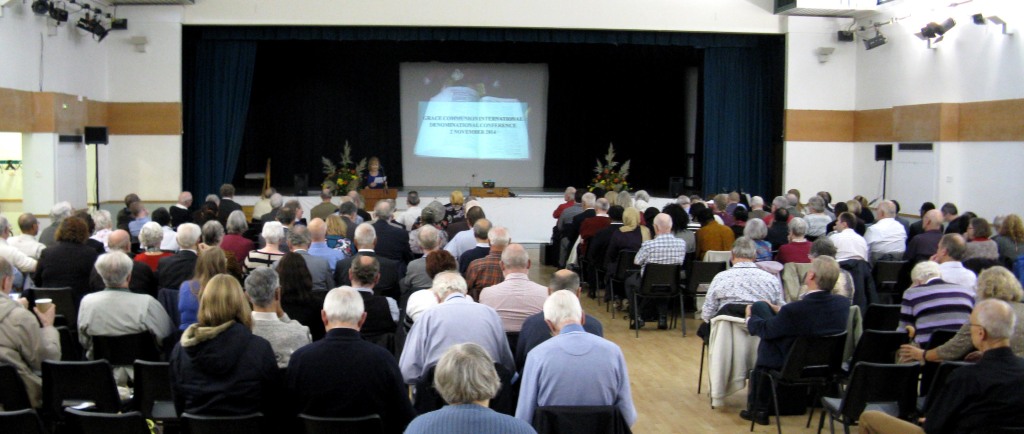
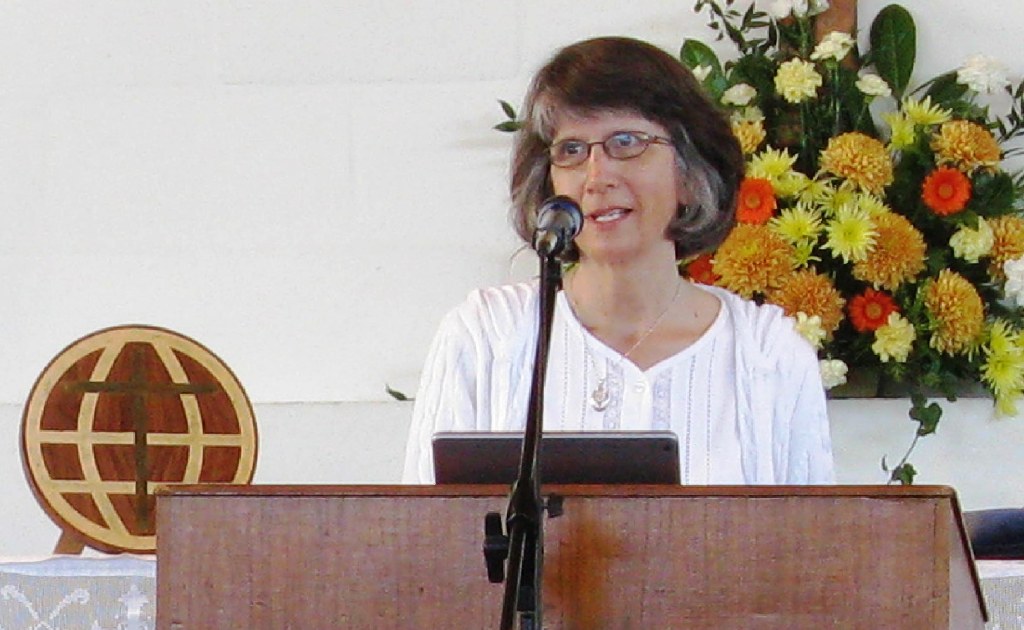
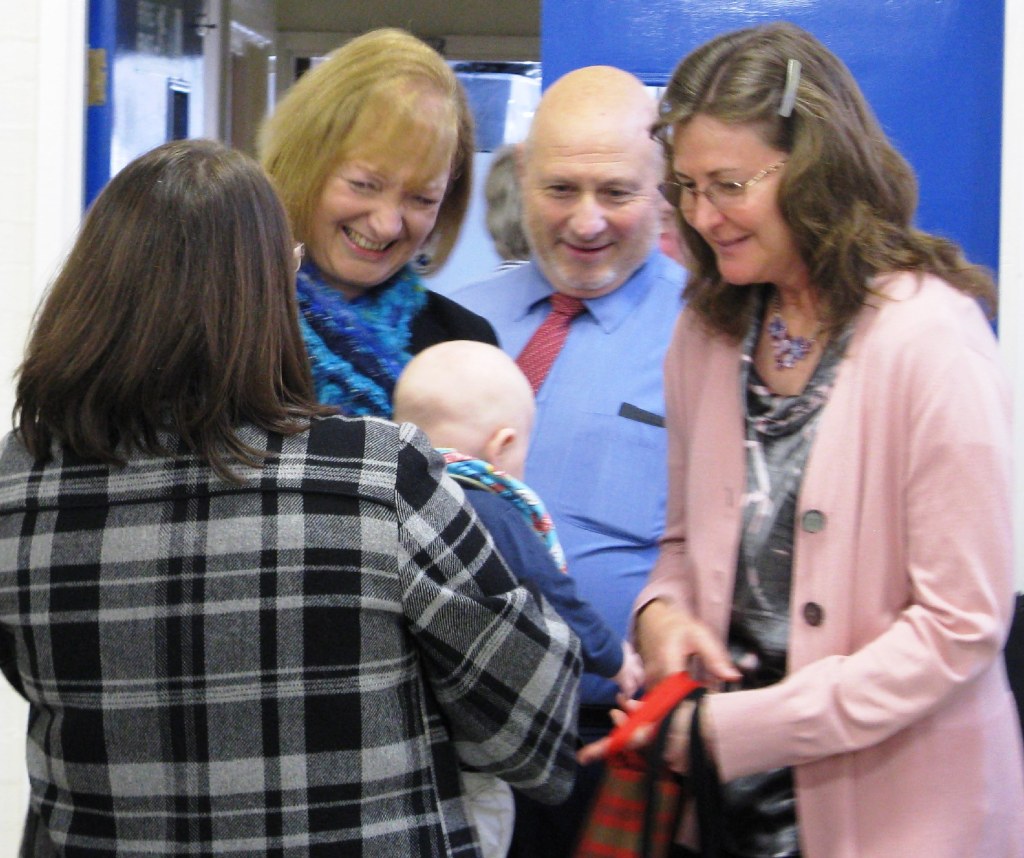
Steve Dobritch, pastoral resident in GCI’s Canfield, Ohio, church, grew up near Cincinnati but moved a lot. “My father, being a minister, was involved in more churches than I can remember. I had the opportunity to be a part of many congregations around the Ohio-Pennsylvania area. I’ve been in our Canfield church (near Youngstown, Ohio), for the last 20 years.” Steve said that being a “pastor’s kid” gave him unique experiences. “While it was sad to leave friends and change schools growing up, it was also exciting to experience all of the different churches and communities over the years.”

Growing up in a pastor’s home influenced Steve’s decision to be actively involved in ministry for the past 12 years. Much of that ministry has involved one of the loves of his life: “Music is my favorite thing in the world. When we worship—whether inside or outside the church—music transcends the normal and accentuates the spiritual. For me, music makes the worship experience one of the most important parts of my relationship with God.”
It was in a GCI camp that Steve first heard about GCI’s intern program and he sent in an application. ”In January 2012 I became an intern under the direction of my father John Dobritch, who pastors our Canfield church. Over the years while volunteering in that congregation, I realized a calling to ministry. The moment I chose to enter the intern program was the moment I knew that I wanted to pursue pastoral ministry as my vocation. I have never seen something so simple become so difficult, and at the same time, so rewarding. Ministry is what gets me excited about getting out of bed every day.”
Steve was in the intern program for two years. “The strengths of my experience in the program were the opportunities to work in ministry leadership in youth and worship ministry. The main challenges I experienced were the expectations I placed on myself. It’s easy for me to dwell on the professional aspects of ministry and get caught up in reaching goals I set for myself instead of focusing on where God has me and dealing with the growth he intends for me.” Steve recalls his first sermon as being one of his most memorable experiences. “It was the most terrifying and exhilarating moment of my life.”
After completing the intern program, Steve began serving alongside his dad as a pastoral resident in the Canfield church. “The thing I enjoy most about the residency program is the people involved in it. I have had more support in the church while being a pastoral resident than I could ever have imagined. Countless people have been there for me and continue to support me as I continue to grow in my identity as a pastoral leader in the church.”
When asked about being part of GCI, Steve says he loves our history. “I can’t think of another group of people who have gone through the kind of evolution we have. To see where we are and how far we have come is staggering, in a good way. I think we understand just how blessed we are because we can look back.”
Steve said he feels closest to God when going through a trial. “There are moments when I realize I need more than what I can give and I have to rely on the strength God gives me. While it can be humbling, it also allows me to remember the importance of the role God has in my life.”
Advice Steve would give to someone considering the intern program? “It might get uncomfortable and it will definitely be humbling, but it will change who you are in the best way possible.”
For information about the GCI intern program, go to www.gci.org/internprogram.
As a church planting movement, GCI is committed to participating with Jesus in his mission to multiply his disciples. Vital to that participation is the leadership provided by our senior pastors. Because many of them are reaching an age when they need to transition out of that ministry role, leadership succession is an increasingly common reality. There is no single approach to the succession process—in the U.S., Church Administration and Development works with each congregation to design a succession pathway that includes identifying, pre-qualifying and then installing a new senior pastor (or pastoral care team, as resources allow).
Several of these succession processes have recently been completed. In Seattle-Bellevue, Washington, Wayne Mitchell has succeeded Bill Miller. In Fort Wayne, Indiana, David Howe has succeeded Roger Abels. In Mesquite, Texas, Gabriel Ojih has succeeded Bob Persky. Below are reports on several others. Congratulations to the new senior pastors and our deep thanks to the senior pastors who, after many years of service, are moving on to new phases in ministry and life. We also thank the congregations involved for their active, supportive participation. And last, but certainly not least, we thank God for his generous provision and guidance.
Big Sandy, Texas, and Texarkana, Arkansas
Regional pastor Ted Johnston led the process in which Jerome Ellard succeeded Sonny Parsons as senior pastor of this two-church circuit.
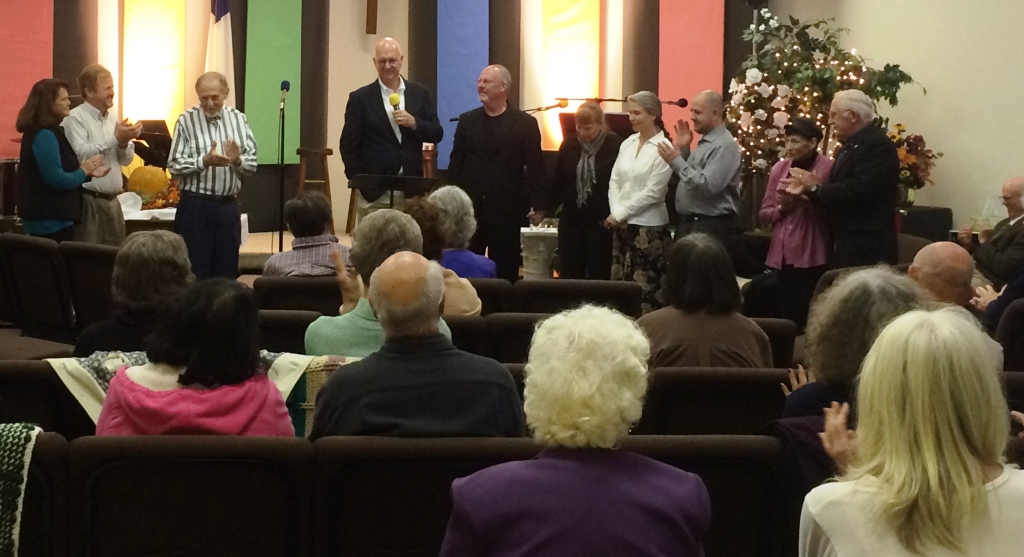
Watham and Holden, Massachusetts
Regional pastor Randy Bloom and district pastor Larry Wooldridge led the succession process in which Dishon Mills replaced Bill Ford as senior pastor in this two-church circuit.
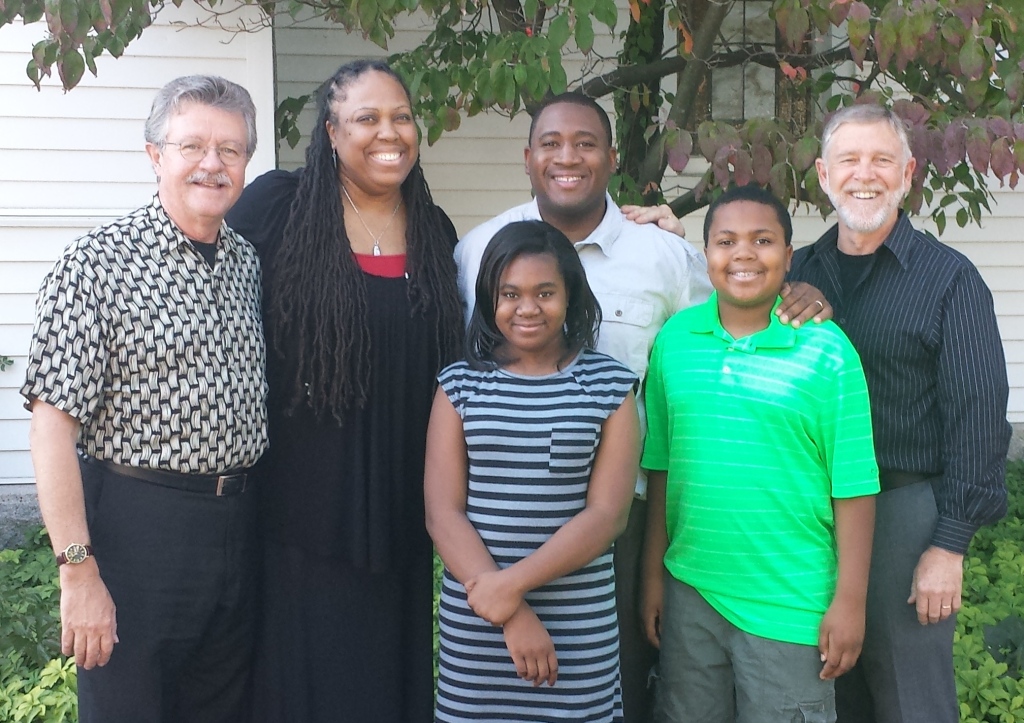
The Colony, Texas
Regional pastor Ted Johnston led the process in which Steve Solari succeeded Arnold Clauson (now deceased) as senior pastor in this congregation on the north side of the Dallas metroplex.
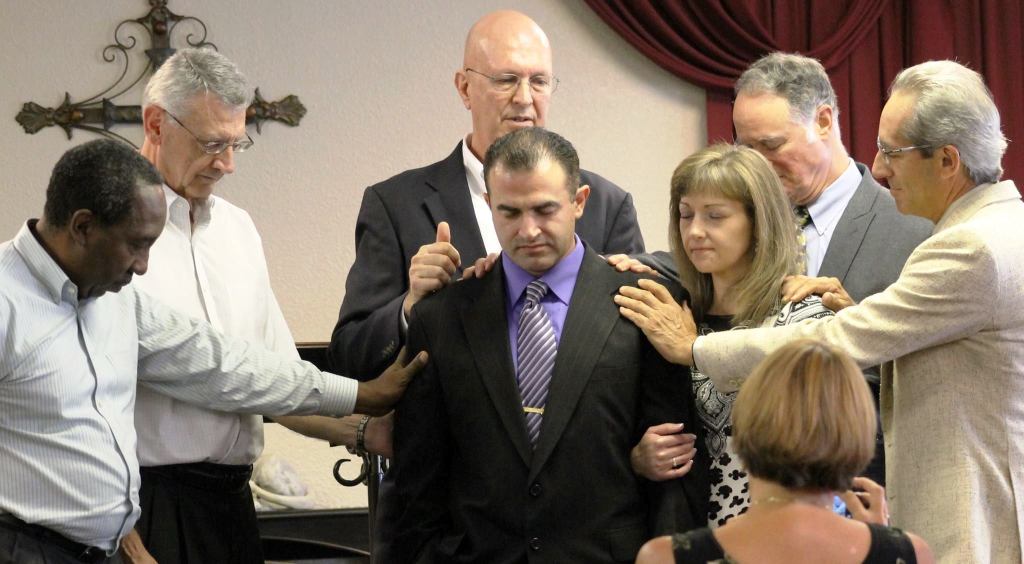
Ray Meyer’s experience
For a testimony from retired GCI pastor Ray Meyer concerning his succession process, watch this:
On YouTube at http://youtu.be/2z3q-dJt-YU.
Dear Brothers and Sisters in Christ, 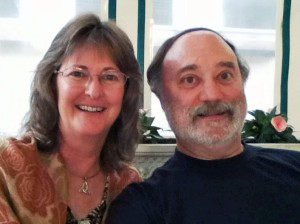 Sometimes we are so excited about celebrating the Incarnation of the Son of God at Christmas that we neglect Advent, the season that begins the annual Christian worship calendar. Spanning the four Sundays preceding Christmas, Advent this year begins November 30. The word “advent” is from adventus (Latin), meaning “coming” or “arrival.” Advent celebrates Jesus’ three “comings” (typically in reverse order): future (Jesus’ return), present (in the Spirit) and past (Jesus’ incarnation/birth).
Sometimes we are so excited about celebrating the Incarnation of the Son of God at Christmas that we neglect Advent, the season that begins the annual Christian worship calendar. Spanning the four Sundays preceding Christmas, Advent this year begins November 30. The word “advent” is from adventus (Latin), meaning “coming” or “arrival.” Advent celebrates Jesus’ three “comings” (typically in reverse order): future (Jesus’ return), present (in the Spirit) and past (Jesus’ incarnation/birth).

Our understanding of Advent is enriched when we note how these three comings interrelate. The author of Hebrews used this phrase: “Jesus Christ is the same yesterday and today and forever” (Hebrews 13:8). Jesus came in the Incarnation (yesterday), he lives in us now through the Spirit (today) and will return as King of kings and Lord of lords (forever). Another way to look at this is in terms of the kingdom of God. Jesus’ incarnation brought the kingdom to humanity (yesterday), he invites believers to enter in and participate in that kingdom (today) and when he returns, he will reveal the already-existing kingdom to all humanity (forever).
Jesus used several parables to explain the kingdom that he was establishing: the parable of the seed, which grows invisibly and quietly (Mark 4:26-29); the parable of the mustard seed, which grows from a small seed to a large bush (Mark 4:30-32); and the parable of the yeast, which leavened all the flour (Matthew 13:33). These parables show that the kingdom was brought to earth at the Incarnation and still exists as a reality today. Jesus also said, “If I cast out demons by the Spirit of God [which he did], then the kingdom of heaven has come to you” (Matthew 12:28; Luke 11:20). The kingdom is here, he said, and the proof is in the exorcisms and other good works of the church.
The power of God is continually manifest through believers who live in the reality of the kingdom. Jesus Christ is the head of the church yesterday, today and forever. Just as the kingdom was present in the ministry of Jesus, it is present now (though not yet fully) in the ministry of his church. The King is among us; his spiritual power is in us, even though his kingdom is not yet operating in full power. Martin Luther analogized that Jesus has bound Satan but with a long chain: “He [Satan] can do no more than a bad dog on a chain, which may bark, run here and there, and tear at the chain.”
The fullness of the kingdom will come—that is the “forever” we hope for. We know no matter how much we try to live in a way that reflects God, we cannot transform the entire world into God’s kingdom today. Only Jesus can do that, and he will at his glorious return. So while the kingdom has a present reality, its fullness is in the future. Though largely hidden today, the kingdom will be completely manifested at Jesus’ final advent.
Paul spoke often of the kingdom in its future sense. He warned against the things that prevent people from “inheriting the kingdom of God” (1 Corinthians 6:9-10; 15:50; Galatians 5:21; Ephesians 5:5). As his language often reflected, Paul predominantly thought of the kingdom as realized at the end of the age (1 Thessalonians 2:12; 2 Thessalonians 1:5; Colossians 4:11; 2 Timothy 4:1, 18). However, he also understood that wherever Jesus is, his kingdom is now present, even in what he called “this present evil age” (Galatians 1:4). Since Jesus lives in us now, the kingdom is now present and, as Paul taught, we are now citizens of the kingdom of heaven (Philippians 3:20).
Advent is also spoken of in terms of our salvation, which the New Testament refers to in three tenses: past, present and future. The past tense is our finished salvation. It is what Jesus accomplished in his first coming—through his life, death, resurrection and ascension. The present tense is what we have now—Jesus living in us and inviting us to participate in his kingdom work. The future tense is the fullness of salvation, which we will experience when Jesus visibly returns and God is all in all.
It’s interesting to note that the Bible emphasizes the visibility of Jesus’ first coming and final coming. In between the “yesterday” and “forever,” Jesus’ present coming is invisible in that we do not see him walking around as they did in the first century. However, because we are now ambassadors for Christ (2 Corinthians 5:20), we are called to represent the reality of Christ and his kingdom. So while Jesus may not be visible, we know he is with us and will never leave or forsake us, and others can see Jesus through us. We are called to make visible some of the glories of the kingdom—doing so by allowing the fruit of the Spirit to flow through us and by keeping Jesus’ new commandment to love one another (John 13:34-35).
When we understand that Advent focuses on Jesus yesterday, today and forever, we are better able to understand the four traditional Advent themes (represented in the wreath pictured above): hope, peace, joy and love. As the Messiah the prophets spoke of, Jesus is the reality of the hope that sustained God’s people. He did not come as a warrior or conquering king but as the Prince of peace, showing that God’s plan was to bring peace. The theme of joy focuses on the joyous anticipation of the birth and return of our Savior. And love is what God is all about. God, who is love, loved us yesterday (before the foundation of the world) and continues to love us (individually and intimately) both today and forever.
I pray your Advent season is filled with Jesus’ hope, peace and joy along with daily reminders through the Spirit of just how much he loves you.
Trusting Jesus yesterday, today and forever, Joseph Tkach
PS: For more on the present and future reality of the kingdom of God, see the article “The Present and Future Kingdom of God” at www.gci.org/gospel/kingdom and the series of articles in GCI Weekly Update on the kingdom of God by Gary Deddo that begins at update.gci.org/2014/02/the-kingdom-of-god-part-1/.
Janet Morrison, leader of Generations Ministries’ Great Commissions Trips, recently announced that the ministry will be conducting a mission trip to Nepal on July 30 through August 9, 2015. The purpose of the trip is to serve the Badi caste (the so-called “untouchables”) in that society.
People age 17-30 who attend GCI are invited to participate in this one-of-a-kind mission opportunity. It’s designed with young emerging leaders in mind.
For details, go to http://www.gctrips.org/nepal.htm.